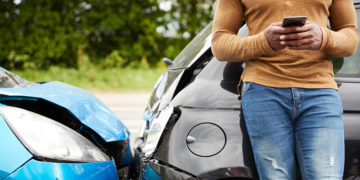Study: Drowsy driving can be as dangerous as drunk driving

Drunk and distracted driving receive a good deal of media attention, and rightfully so. However, drowsy driving can be just as dangerous. With many Americans not getting enough sleep, working long hours and having lengthy commutes, it’s become a serious problem. About 20 percent of fatal accidents in this country are linked to drowsy driving.
A recently-released study by the AAA Foundation for Traffic Safety found that people who have had less than seven hours of sleep in the past 24 hours are at greater risk of being in a crash than those who have gotten at least that much.
Further, according to the study, the less sleep you get, the more your odds of a crash increase. Drivers who have gotten just five to six hours of sleep double their risk of a crash. Those who’ve had less than five hours quadruple it. Their odds of being involved in an accident are comparable to those of drunk drivers.
While some drivers are aware that they aren’t alert enough to drive because they feel their eyes getting heavy or drift into another lane, they power through anyway because they need or want to get where they’re going. However, according to AAA, half of all drivers involved in drowsy driving-related crashes report that they weren’t aware that they were drowsy before they dozed off behind the wheel.
While getting at least seven hours of sleep every night is one way to help prevent a drowsy driving accident, there are other factors that can make drivers less than alert. Many medications cause drowsiness. Driving for long distances or long periods without a break can decrease alertness. Driving at times that you’re not usually on the road, particularly in the early morning or late night hours, can also cause people do doze off.
Even if you’re careful not to drive when you’re tired, you can’t control what other drivers decide to do. If you’re injured in an accident where another driver was at fault, one factor that you and your attorney should look into is whether the driver was sleep-deprived or less than alert due to medication, a long stretch of driving or other factors. That could influence the outcome of a civil case against that driver.
Source: NBC 4 Washington, “Drowsy Driving Comparable to Drunk Driving: AAA Foundation Study,” Dec. 06, 2016



